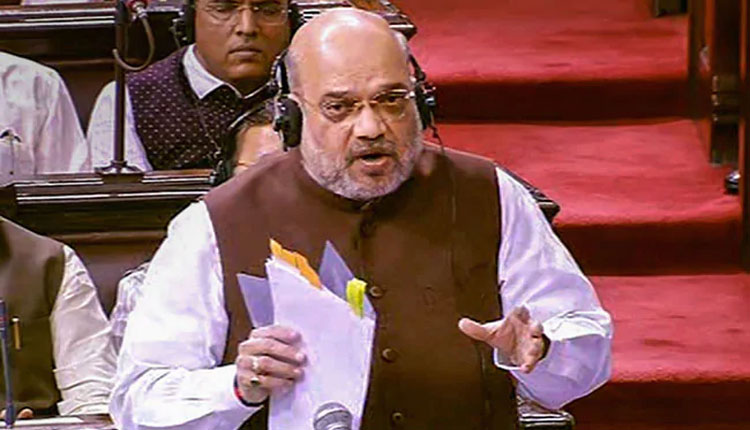New Delhi: As the Supreme Court prepares to deliver its verdict on the constitutionality of abrogating Article 370 and revoking Jammu and Kashmir’s special status, a look back at the 2019 parliamentary debates reveals the political landscape surrounding this historic decision.
On August 5th, 2019, the Rajya Sabha witnessed a heated debate before passing the bill to nullify Article 370 and the Jammu and Kashmir Reorganisation Bill. With 125 votes in favour and 61 against, the bill successfully cleared the Upper House. The next day, the Lok Sabha followed suit, passing the reorganisation bill with 370 votes in favour and 70 against. The resolution to abrogate Article 370 received even greater support, with 351 members voting in favour and 72 against.
Interestingly, the Bharatiya Janata Party (BJP) government garnered support from parties known for occasional opposition or neutrality. Mayawati’s Bahujan Samaj Party (BSP), Arvind Kejriwal’s Aam Aadmi Party (AAP), Naveen Patnaik’s Biju Janata Dal (BJD), Jagan Mohan Reddy’s YSR Congress, N. Chandrababu Naidu’s Telugu Desam Party (TDP), and K. Chandrashekar Rao’s Telangana Rashtra Samithi (now Bharat Rashtra Samithi) all supported the abrogation of Article 370.
While the Congress party vehemently opposed the move, its stance softened over time. Other regional parties from Jammu and Kashmir, including the National Conference, the Peoples Democratic Party (PDP), and the People’s Conference, strongly condemned the decision as unconstitutional.
Nitish Kumar’s Janata Dal (United), despite being a BJP ally, opposed the resolution but abstained from voting in protest. Mamata Banerjee’s Trinamool Congress followed a similar path, opposing the government in both Houses but abstaining from the final vote. The Nationalist Congress Party (NCP) also walked out of the Lok Sabha during the vote.
It’s noteworthy that despite their parties’ official positions, some individuals within the Congress, Trinamool Congress, BSP, JD (U), Samajwadi Party, and NCP voiced support for the government’s action.
As the Supreme Court prepares to weigh in on this complex issue, revisiting the historical context and political landscape surrounding the abrogation of Article 370 offers valuable insights into the perspectives shaping India’s future.



Comments are closed.